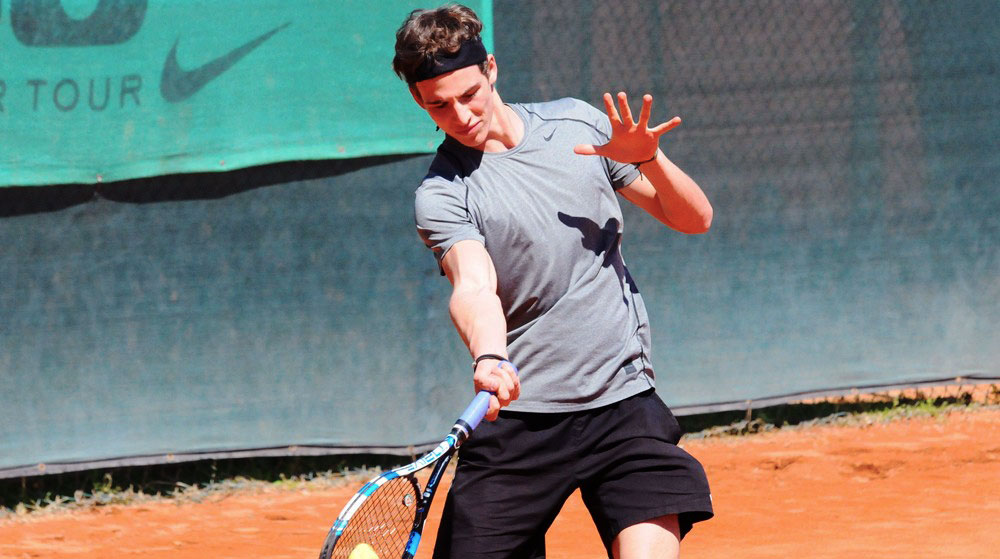
At the Tennis Complex on Wednesday afternoon, freshman Kushaan Nath warmed up more than 7,000 miles from his home in India. Ahead of the Binghamton men’s tennis team’s first practice of the season, Nath stood across from freshmen teammates Tiago Lourenco, who hails from Portugal, and Amerigo Valenti, a native of Italy. Agustin Cattoretti and Sebastian Quiros, the final two freshmen on the roster, came to Binghamton from Bolivia and El Salvador, respectively.
It would be surprising to see the entirety of a recruiting class that has been signed from foreign countries in college basketball, golf or even soccer. But tennis is different.
More than any other sport, tennis teams, especially ones on the Division I level, recruit highly skilled international players to fill a talent gap that junior tennis in the United States has left. As of 2010, 40 percent of Division I men’s tennis players were non-U.S. residents — the most of any sport.
According to BU head coach Nick Zieziula, one factor in the widespread recruitment of international players is the lack of DI caliber talent in the United States. Here, tennis competes for players with a number of other sports. In many European countries, tennis is among the two or three most popular sports.
“College tennis is very competitive right now,” Zieziula said. “In any given year, there might be five players who graduate in New York that might be able to contribute to a Division I team, and there are two other Division I state schools in Buffalo and Albany who compete for them. In addition, tennis tends to be a strong sport academically and a lot of those players are interested in going to Ivy League schools, or even smaller Division III schools that are good at tennis.”
For the Bearcats, this means that seven of the the 11 players on the roster are non-U.S. residents.
“What we are most concerned with is making our program as strong as possible, on the court and off the court,” Zieziula said. “We would like to keep the roster split about 50/50 between American and international guys but at the end of the day, we’re looking to see who’s going to contribute the most.”
For coaches, scouting international players can be more difficult than scouting domestic players. Many players hire agencies to put them into contact with Division I programs in hopes of getting a scholarship, while others chose to contact coaches directly. Some come to the United States to play in showcases, but some rely solely on their records in International Tennis Federation-sponsored junior tournaments.
“You have to build up relationships with some of the agencies,” Zieziula said. “I’ve been working with some of them for a very long time but the best thing to do is still to go and watch some play with your own eyes.”
The practice of recruiting international players has attracted controversy from some in the U.S. tennis community, including some critics who claim that international students take away spots in Division I programs that should belong to U.S. athletes.
“This has been an emotionally charged and often divisive topic,” the United States Tennis Association (USTA) said in a study released in 2011. “There is a wide range of beliefs regarding these issues, and, apparently, much misinformation. This one issue is part of a very complicated fabric, which is the landscape of American collegiate varsity tennis.”
Zieziula believes that the practice is necessary to the success of the men’s tennis team, one of Binghamton’s most accomplished programs. The Bearcats have made the NCAA tournament nine times since transitioning to Division I in 2001.
According to Zieziula, International players also tend to be more mature than their domestic counterparts, due mostly to their ability to take on major commitments at a young age.
“You have to be willing to go on your own to a foreign country to train and go to school,” Zieziula said. “That’s a tough choice to make, to put yourself out there. Which is not an experience American players have.”


